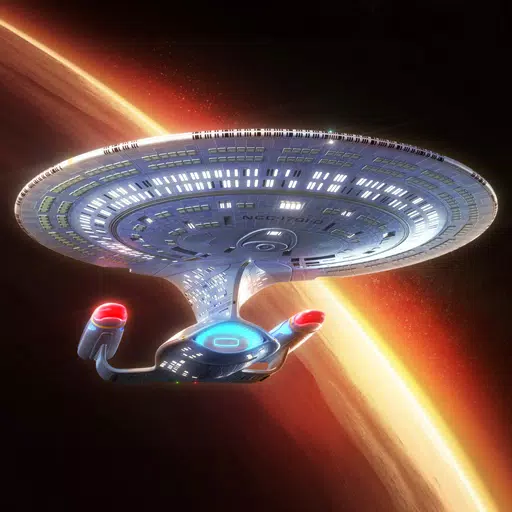Final Fantasy 7: Rebirth Rises to No.3 in U.S. Charts
January 2025 continued the industry's tradition of being a quiet month for game releases, with just one new title breaking into the top 20 and Call of Duty maintaining its predictable reign. There wasn't much to celebrate from the past month... except, perhaps, for what appears to be a remarkable resurgence for a game once considered a commercial letdown: Final Fantasy VII: Rebirth.
Final Fantasy VII: Rebirth first launched in February 2024, entering Circana's U.S. game sales charts at No. 2 based on dollar sales. It slipped to No. 7 the following month and closed the year at No. 17. While these figures are decent, they sparked extensive debate post-launch about whether the game met Square Enix's internal targets or stacked up favorably against other major RPGs from the same year, such as Dragon's Dogma 2 or its forerunner, Final Fantasy VII: Remake. Square Enix eventually conceded that the title fell short of its sales forecasts and notably never disclosed a specific sales number, implying performance wasn't strong enough to promote.
However, it's important to note that Final Fantasy VII: Rebirth launched exclusively on PS5. Platform exclusives typically face steeper sales challenges compared to multi-platform releases. By January 2025, that exclusivity ended with its debut on Steam, catapulting the game to No. 3 on Circana's charts—a massive jump from its No. 56 position in December. Similarly, the Final Fantasy VII: Remake & Rebirth Twin Pack surged from No. 265 in December to No. 16 in January, buoyed by its Steam release.
The positive news doesn't stop there. Circana analyst Mat Piscatella highlighted on Bluesky earlier this month that Rebirth enjoyed a "fantastic" debut on Steam: "Combining physical and tracked digital sales, Final Fantasy VII: Rebirth was the top-selling game in the U.S. for the week ending January 25th, while the FFVII Remake & Rebirth Twin Pack secured the No. 3 spot."
While this data is U.S.-specific, it likely mirrors similar performance in other regions. Taken together, this could signal to Square Enix that a strategic shift is necessary. This success naturally fuels speculation that the sales boost from the PC release might influence the company to adopt day-one cross-platform launches for future Final Fantasy titles. I asked Piscatella for his perspective on the situation, and here is his response:
"It's difficult for me to gauge the precise impact of the Steam release on the publisher's perception of the game's overall success. That's influenced by numerous internal planning factors and expectations I'm not party to. However, purely from the standpoint of consumer engagement, it was an exceptionally strong launch month on Steam. This performance adds to the growing evidence that a PC release is a highly viable strategy now, irrespective of a game's genre or historical launch approach.
"For third-party publishers, pursuing a single-platform exclusive release is becoming increasingly challenging without substantial financial incentives from the platform holder."
We will have to wait until Square Enix's next relevant earnings call in May to see their official reaction. Stay tuned for updates.
Indeed, it is looking increasingly difficult to release a game exclusively on one platform without significant financial backing from the platform holder.
As for the rest of the January charts, it's no surprise that Call of Duty: Black Ops 6 held the top spot as the month's best-selling game, followed by Madden NFL 25. The only new release to enter the top 20 was Donkey Kong Country Returns on Nintendo Switch, which landed at No. 8 based entirely on physical sales data (Nintendo does not share digital eShop sales figures).
Also noteworthy was the re-entry of It Takes Two into the top 20, claiming the No. 20 position. According to Piscatella, there isn't one single reason for its comeback. "The game was promoted during the month, including featured placements on the PlayStation Store and Nintendo eShop in the last week of January," he explained. "But in reality, It Takes Two maintained steady sales throughout the entire month. Its recent rally actually began in December, with both sales and player engagement increasing and continuing into January."
Much of this renewed promotional activity for It Takes Two is likely tied to the upcoming release of Hazelight Studios' next game, Split Fiction, scheduled for March.
Overall, January's games spending showed a decline compared to the same period last year, but there is a plausible explanation. The tracking period for January 2025 covered four weeks, whereas January 2024 encompassed five weeks—an entire extra week of revenue generation. Consequently, total consumer spending on games fell 15% to $4.5 billion for the month (though it was 0.3% higher than the four-week period in January 2023). Spending on accessories saw a sharper year-over-year decline of 28%.
Content spending was down 12% compared to the previous year, with console content spending dropping 35%. Hardware spending experienced a significant 45% decrease. Year-over-year, PS5 hardware spending fell 38%, Xbox Series spending was down 50%, and Switch spending declined by 53%. Despite this, the PS5 was the month's best-selling hardware platform in both dollar sales and units sold. Xbox Series consoles ranked second in hardware spending, while the Switch narrowly secured the second spot in unit sales.
The top 20 best-selling games in the U.S. for the month of January 2025, based on dollar sales:
Call of Duty: Black Ops 6Madden NFL 25Final Fantasy VII: RebirthEA Sports FC 25Minecraft*Marvel's Spider-Man 2EA Sports College Football 25Donkey Kong Country Returns*Hogwarts LegacySonic GenerationsHelldivers IIAstro BotDragon Ball: Sparking! ZeroSuper Mario Party Jamboree*Elden RingFinal Fantasy VII Remake & Rebirth Twin PackMario Kart 8*The Crew: MotorfestUFC 5It Takes Two
* Indicates that some or all digital sales are not included in Circana's data. Some publishers, including Nintendo and Take-Two, do not share certain digital data for this report.




























